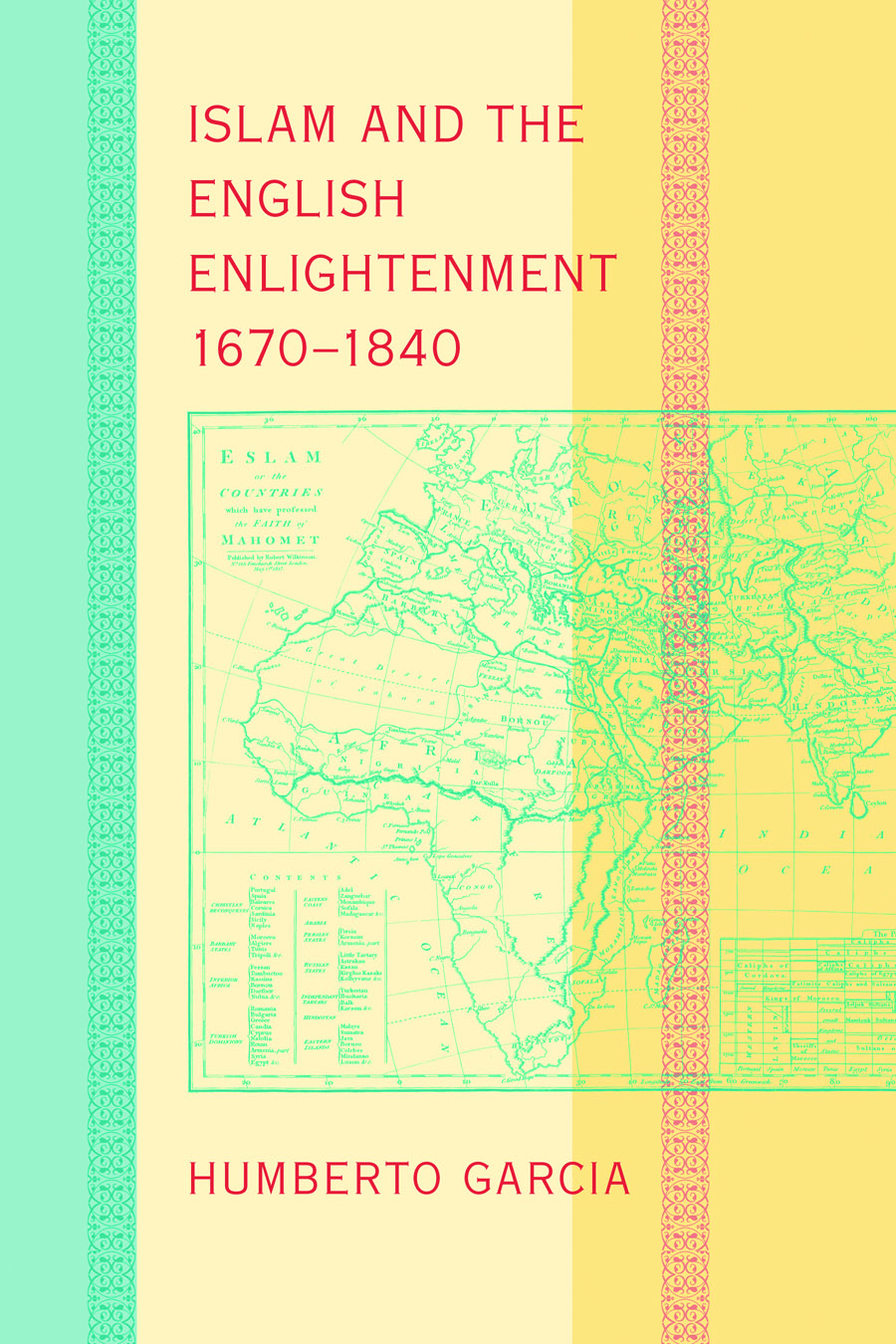
Islam and the English Enlightenment 1670-1840. By Humberto Garcia, Baltimore, Maryland: Johns Hopkins University Press. Pp346. HB. £54.00
Although Prophet Muhammad (peace be on him) was well-known in early modern English culture, not many people know that Islam played an important and enduring role in eighteenth-century England. Despite early Christian efforts to present Islam as a post-Christian heresy and aberration, the religion of the Arabian Prophet not only played a crucial role during the English Enlightenment but also in the formation of Englishness and its ramification for our times.
In the book under view, Humberto Garcia, who is a young scholar and currently an assistant Professor of English at the University of Vanderbilt, United States, explores the role played by Islam in England during the late seventeenth and early eighteenth centuries. The author explains right at the outset that this book is a historical and literary study of Islam’s contribution to Radical Enlightenment debates that took place in England during the Glorious Revolution, French Revolution and other moments of constitutional crisis in Western Europe.
According to the author, ‘…sympathetic literary and cultural representations of the Islamic republic contributed significantly to Protestant Britain’s evolving self-definition between 1670 and 1840. Radical Protestant accounts about the Islamic republic – in which the Prophet Muhammad, the wise legislator, restored constitutional rule – captured the political imagination of many eighteenth-century and Romantic-era writers who rejected, or were troubled by, the democratic principles that were implemented in Georgian Britain its overseas empire, and revolutionary France. Although writers such as Edmund Burke, Samuel Taylor Coleridge, and Percy Bysshe Shelley eventually abandoned their commitments to Islam, their short-term infatuation with this faith reminds twenty-first-century readers that our secular predecessors often hailed the Prophet an Enlightened Promethean hero.’ (p.xi)
Consisting of six detailed chapters, a short but insightful introduction and an equally pertinent epilogue, in this book the author provides a detailed and cogent exploration of how relatively informed and sympathetic engagement with Islam contributed significantly to the formation of Protestant Britain’s national self-identity as well as its international role and standing. He achieved this based on a detailed study of the writings of prominent English writers like Henry Stubbe, John Toland, Lady Mary Wortley Montagu, Samuel Taylor Coleridge, Robert Southey, Thomas Moore, Lord Byron and Mary Shelley, among others.
According to the author, ‘This book includes only those works that self-consciously illustrate the long historical continuity between radical heterodox writings on Mahometanism and national discourses on civic republicanism. Because of this meticulous focus on England and English writers (apart from Edmund Burke), this study is also narrow in its regional coverage… Notwithstanding these limitations, I will have performed a valuable service to my readers if my work helps dismantle “the West and the Rest” paradigm that has framed post-9/11 discussions of Islam.’ (pp.xiv-xv)
Based on an analysis of both primary and secondary sources, this is an informative, well- researched and highly readable book. Consisting of around 100 pages of notes and references alone, it is a highly recommended reading especially for students of English literature, history and comparative religion.
The author concludes this book saying, ‘…this book addresses the urgent need voiced by Derrida, Rowan Williams, and others to deconstruct Eurocentric narratives of Enlightenment secularisation. By casting Islam as a reactionary religion, these narratives continue to act as a stumbling block in initiating a productive dialogue with the Muslim world. Hence, documenting Islam’s historical contributions to secular modernity is paramount.’ (p 230)
Muhammad Khan. M Khan is author of Makers of Western Islam: The Lives, Thoughts and Achievements of 50 Great Western Muslims (Kube Publishing, forthcoming)`